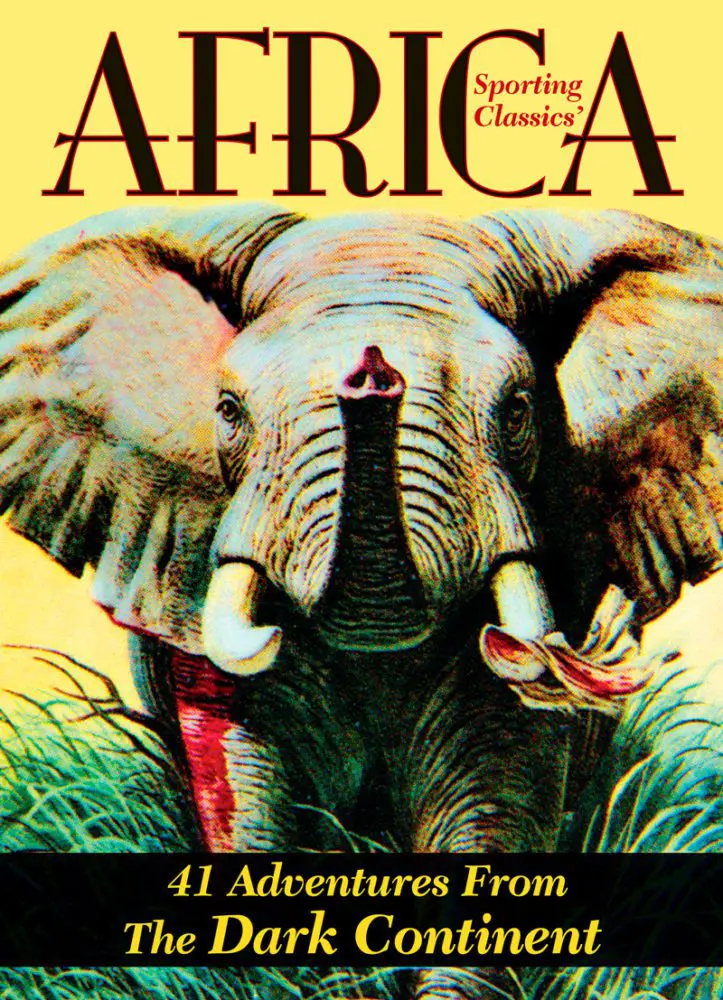One morning as they hunted the green foothills of the Loita Range, they surprised an old rhino, which immediately charged. Bud fired, wounding the beast, which veered away into the dense brush. As his son pursued the rhino, Charles waited behind in the glade. All of a sudden the screech of tick birds pierced the stillness. Knowing the birds’ cries signaled the presence of a rhino or buffalo, Charles quickly unshouldered his heavy wooden tripod. The brush crackled like gunfire as an angry rhino tore out of the thorns looking for trouble. It paused briefly, its head held high, its long horns tilted like lances at Bwana’s mid-section. Charles kept his eye to the viewfinder and cranked away. As he rolled off the film, the rhino charged, boiling through the dust. It was exactly the kind of dramatic footage he so badly needed.
Charles figured he would film until the last one-hundredth of a second, then throw up his big .405 Winchester and drop the beast with a solid bullet in the brain. In worse case he could jump aside as the clumsy faru brushed past in his blind charge. When the thundering beast was on him, Cottar fired at point-blank range. The bullet struck muscle and bone, but the rhino was able to sweep his long horn upwards, ripping Bwana’s thigh. The rhino’s two-ton impact knocked the big man down, just as the faru fell mortally wounded across Cottar’s legs. Yet the battering rhino had failed to loosen Bwana’s grip on his rifle. Pinned down by the great thrashing body, Cottar rammed his rifle into the rhino and fired several more rounds.
Bud heard the gunshots and sprinted back to his father. He saw where the horn had opened Bwana’s leg and passed through an artery. Bud fashioned a tourniquet to staunch the blood pumping from his father’s thigh. Cottar’s sun-shot eyes calmly gazed at a spiral of vultures with wings razoring the air, their shadows swooping doom over his tanned face. Cottar impatiently motioned toward the gunbearers who were tying a tarpaulin to shade him.
Mortally wounded, Charles commanded, “Tell them to stop. It’s no use. I’m done for. Roll it back.”
As he lay on Masailand’s baked black-cotton soil, he fixed his blue eyes on the sky above Cottar Country. One hour later the 66-year-old hunter had bled to death.
This story plus 40 other exciting others by some of the greatest hunting authors, including Ruark, Hemingway and Capstick, can be found in Sporting Classics’ Africa.
Add to, or begin, your collection of great hunting books today. Click Here to buy now or visit www.sportingclassicsstore.com for other great books!


